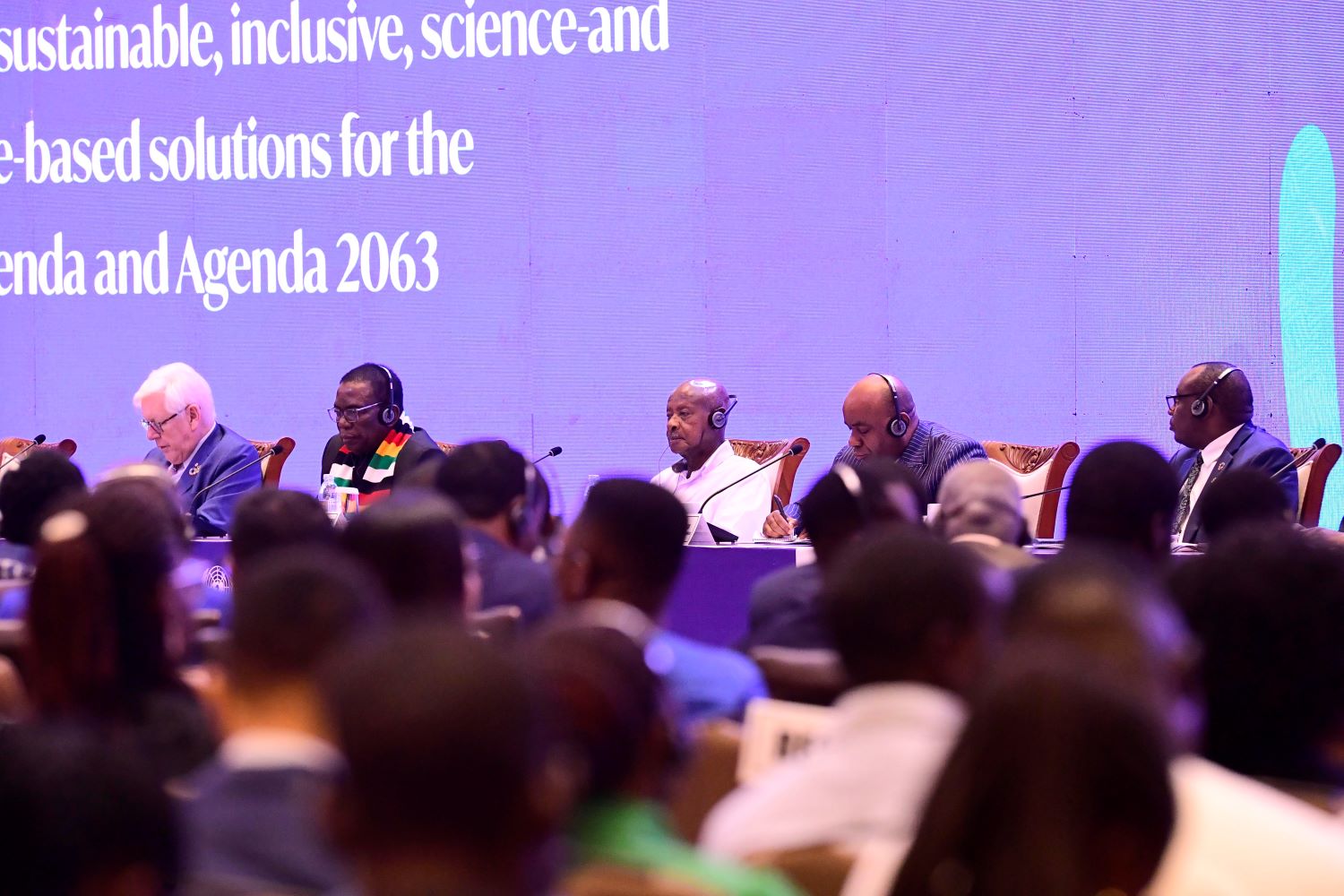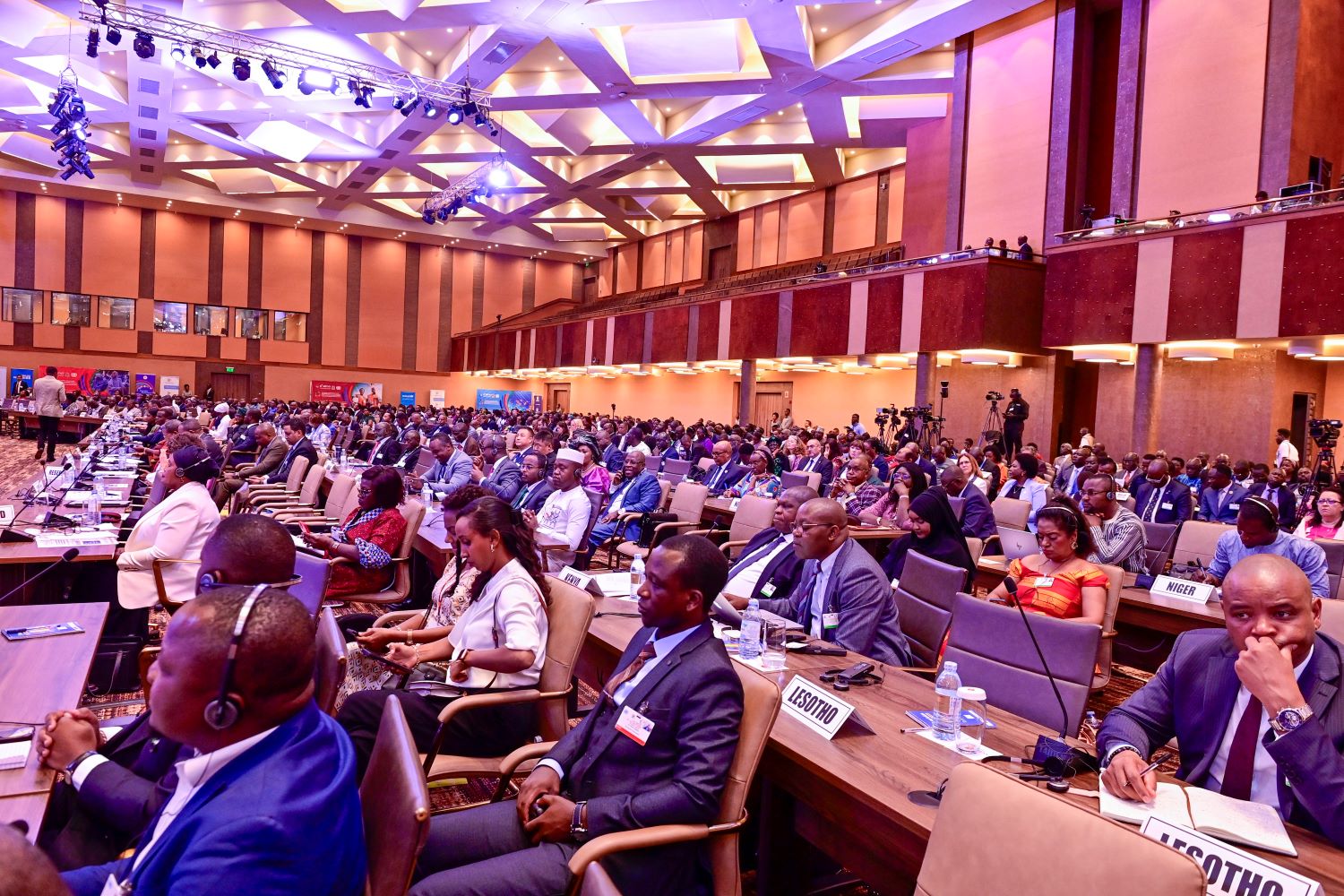PRESIDENT MUSEVENI RALLIES AFRICA TO PURSUE HOMEGROWN SOLUTIONS AND REGIONAL INTEGRATION
President Yoweri Kaguta Museveni has called on African nations to take charge of their development agendas through homegrown solutions and regional integration. He noted that external support, while helpful, is not a guarantee for sustainable progress in Africa. The President made the remarks today while officiating at the 11th Session of the Africa Regional Forum on Sustainable Development (ARFSD-11), which took place at the Speke Resort Convention Centre in Munyonyo, Kampala.
The three-day forum is held under the theme: “Driving job creation and economic growth through sustainable, inclusive, science and evidence-based solutions for the 2030 Agenda and Agenda 2063”. The Africa Regional Forum on Sustainable Development (ARFSD) is an annual platform convened by the United Nations Economic Commission
for Africa (UNECA) in collaboration with the African Union and host governments. At the event, the President was in company of the First Lady and Minister of Education and Sports, Maama Janet Museveni and H.E Emmerson Dambudzo Mnangagwa, the President of the Republic of Zimbabwe. “The solutions are with us,” President Museveni emphasized.

He recounted a recent disagreement between Uganda and some Western countries following the enactment of legislation concerning homosexuality. “We had an argument with Europeans recently. We passed a law which
was discussing homosexuality here. Then the United States removed us from the AGOA list, and they chased us. The World Bank stopped giving us loans, but our economy still grew by 6%.” According to the President, Uganda’s resilience amid global criticism demonstrates that the country and indeed Africa can achieve progress even in the absence of external aid.
“What’s crucial for me, apart from our own mistakes, is regional integration. If we avoid them, we can go far,” he added. President Museveni highlighted that Uganda’s economy has developed rapidly, with or without foreign assistance. He offered an in-depth reflection on the country's economic history and transformation, tracing it back to the year 1900 when the British declared Uganda a protectorate after defeating local kings, noting that at that time, Uganda was a pre-capitalist traditional economy based on subsistence agriculture, livestock, artisanal trades (emyooga), fishing, and services such as traditional healing (kuragura). The President mentioned that the economy operated largely on barter trade (okuchurika), with limited use of cowrie shells (ensiimbi) as currency.

